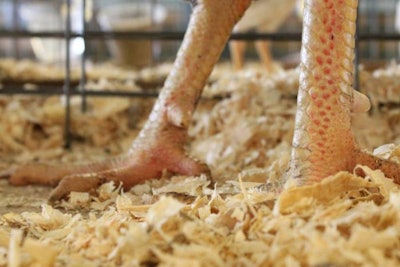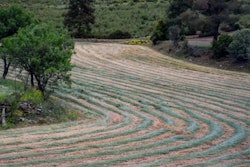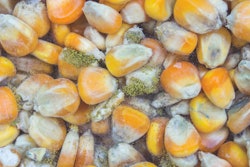
Porcine deltacoronavirus, responsible for swine diarrhea outbreaks, also causes disease in poultry
A form of deltacoronavirus responsible for outbreaks of diarrhea in swine across Asia and the U.S. can also cause disease in poultry, according to a new study from Ohio State University.
Though the virus is known for causing outbreaks of swine diarrhea in 2009 and 2014, porcine deltacoronavirus was previously known to kill cells from other species in a laboratory setting, according to Scott Kenney, an assistant professor at Ohio State University’s College of Veterinary Medicine. When inserted into chicken and human cells in previous trials, the virus killed both. But it wasn’t clear whether that meant it could jump species in the field.
This latest research, co-authored by Kenney and published in Emerging Infectious Diseases, demonstrates that the virus not only jumped species, but spread rapidly when exposed to either chickens or turkeys.
Scientists initially administered the virus to poultry in a liquid media, and observed that both chickens and turkeys developed diarrhea. They later housed the infected birds with a flock that had yet to be exposed, and observed that the second flock developed diarrhea within two to three days.
‘You should keep pigs separate from chickens’
Although deltacoronavirus is typically fatal in swine, most of the infected chickens recovered from the virus. The virus caused more severe disease in turkeys that persisted until the birds were necropsied two weeks later, so it’s not clear how long the disease would last in that species, Kenney said. The virus also caused reduced feed intake and weight gain in poultry.
It’s not clear whether deltacoronavirus is already circulating among U.S. poultry — that would require additional epidemiological research, Kenney said. But the study “shows that pigs can get chickens sick, and chickens could serve to get pigs sick,” he said. “If you have a mixed farm, you should keep pigs separate from chickens.”
Similarly, producers might consider excluding workers or contractors from their barns if they’ve had contact with either species, Kenney said.
The biggest concern stemming from their research, Kenney said, is whether wild birds are capable of spreading the disease. Though unconfirmed, previous theories have suggested that songbirds could potentially spread the virus from one barn to the next.
This latest study, Kenney said, doesn’t prove that wild birds are the reason the virus, the origin of which is unknown, continues to circulate among swine. “But I’d say there’s a pretty good chance,” he said, suggesting producers could also benefit from finding ways to exclude wild birds from their barns as well.











